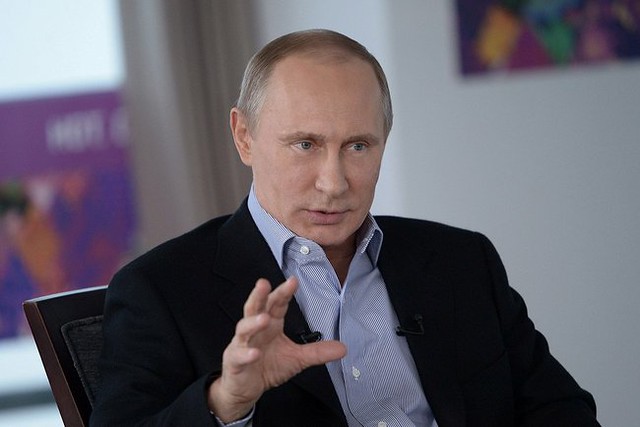Vladimir Putin
Vladimir Putin: The Enigmatic Leader Shaping Russia’s Path
Introduction: Vladimir Vladimirovich Putin, a name synonymous with power, politics, and an indomitable leadership style. As the President of Russia for multiple terms and a key player on the global stage, Putin’s influence extends far beyond the borders of his homeland. This article explores the life, career, and complex persona of Vladimir Putin, delving into the events that have shaped modern Russia under his leadership.
Early Life and KGB Background: Born on October 7, 1952, in Leningrad (now Saint Petersburg), Putin’s early life was marked by a modest upbringing. His interest in sports, particularly judo, showcased an early penchant for discipline and determination. Little did the world know that this unassuming young man would later become one of the most powerful figures in global politics.
Putin’s trajectory took a significant turn when he joined the Soviet Union’s security agency, the KGB, in 1975. His service, initially in counterintelligence, provided a foundation for the skills and mindset that would later define his political career. The KGB chapter of his life remains enigmatic, with limited details available about specific assignments during this period.
Political Ascent: The dissolution of the Soviet Union in 1991 marked a pivotal moment in Putin’s career. He transitioned from the KGB to municipal politics in Saint Petersburg, serving as the city’s mayor from 1991 to 1996. Putin’s effectiveness in this role caught the attention of then-Russian President Boris Yeltsin, who appointed him as the director of the Federal Security Service (FSB) in 1998.
Putin’s rapid ascent continued, and in 1999, Yeltsin unexpectedly resigned, making Putin the acting president. Later that year, Putin won the presidential election, marking the beginning of his era at the helm of Russia’s political landscape. His leadership style was characterized by a blend of assertiveness, pragmatism, and a commitment to restoring Russia’s standing on the global stage.
Consolidation of Power: Putin’s early years as president were marked by economic reforms and efforts to strengthen the central government’s authority. The Russian economy experienced growth during this period, driven in part by rising oil prices. However, concerns emerged regarding the consolidation of power, with Putin accused of suppressing political opposition and curtailing press freedom.
The early 2000s saw Putin taking steps to solidify his influence, including the controversial reining in of regional governors’ autonomy and the acquisition of major media outlets by pro-Kremlin entities. These actions sparked debates about the state of democracy in Russia and the extent of Putin’s commitment to political pluralism.
International Relations: Putin’s impact extends well beyond Russia’s borders, and his foreign policy decisions have shaped global geopolitics. Notably, his stance on NATO expansion, intervention in the Syrian Civil War, and the annexation of Crimea in 2014 have drawn both criticism and support. The annexation, in particular, led to strained relations with the West and sanctions against Russia.
Despite tensions with Western powers, Putin has fostered alliances with other nations, including China. The evolving dynamics of Russia’s relationships on the global stage underscore Putin’s ability to navigate complex geopolitical landscapes and assert Russia’s interests.
Challenges and Controversies: Putin’s leadership has not been without challenges and controversies. Allegations of human rights abuses, crackdowns on political opposition, and concerns about the rule of law have garnered international criticism. The imprisonment of political dissidents, such as Alexei Navalny, has intensified scrutiny of Russia’s domestic policies under Putin’s leadership.
The circumstances surrounding the downing of Malaysia Airlines Flight MH17 in 2014, which was shot down over eastern Ukraine, have also raised questions about Russia’s involvement and accountability. The ongoing conflict in Ukraine, coupled with allegations of interference in other nations’ elections, has added to the complexities of Putin’s international standing.
Cult of Personality and Public Image: Vladimir Putin’s public image is characterized by a carefully crafted blend of strength, athleticism, and a sense of Russian patriotism. His judo skills, shirtless photo ops, and publicized adventures, such as underwater archaeology and wildlife encounters, contribute to a carefully cultivated image of a leader deeply connected to his country and its heritage.
The cult of personality surrounding Putin has played a role in shaping public perception, both domestically and internationally. The narrative of a strong and decisive leader has resonated with many Russians, contributing to his enduring popularity despite the controversies that surround his administration.
Legacy and the Future: As Putin’s presidency extends into its third decade, questions arise about his legacy and the trajectory of Russia’s future. The constitutional changes in 2020, which allow Putin to potentially remain in power until 2036, have fueled discussions about the consolidation of authority and the direction of Russian governance.
Putin’s legacy will undoubtedly be multifaceted, reflecting both economic successes and political challenges. The impact of his leadership on Russia’s place in the world and the dynamics of global politics will continue to unfold in the years to come. The question of succession and the post-Putin era looms large, with implications for the stability and evolution of the Russian Federation.
Conclusion: Vladimir Putin’s journey from a judo enthusiast in Leningrad to the President of Russia is a tale of political acumen, resilience, and controversy. His impact on Russia and the world is indelible, with a leadership style that has garnered admiration and criticism in equal measure. As Putin continues to shape the course of Russia’s future, the complexities of his legacy and the challenges faced by the nation under his rule will remain subjects of global interest and scrutiny.
